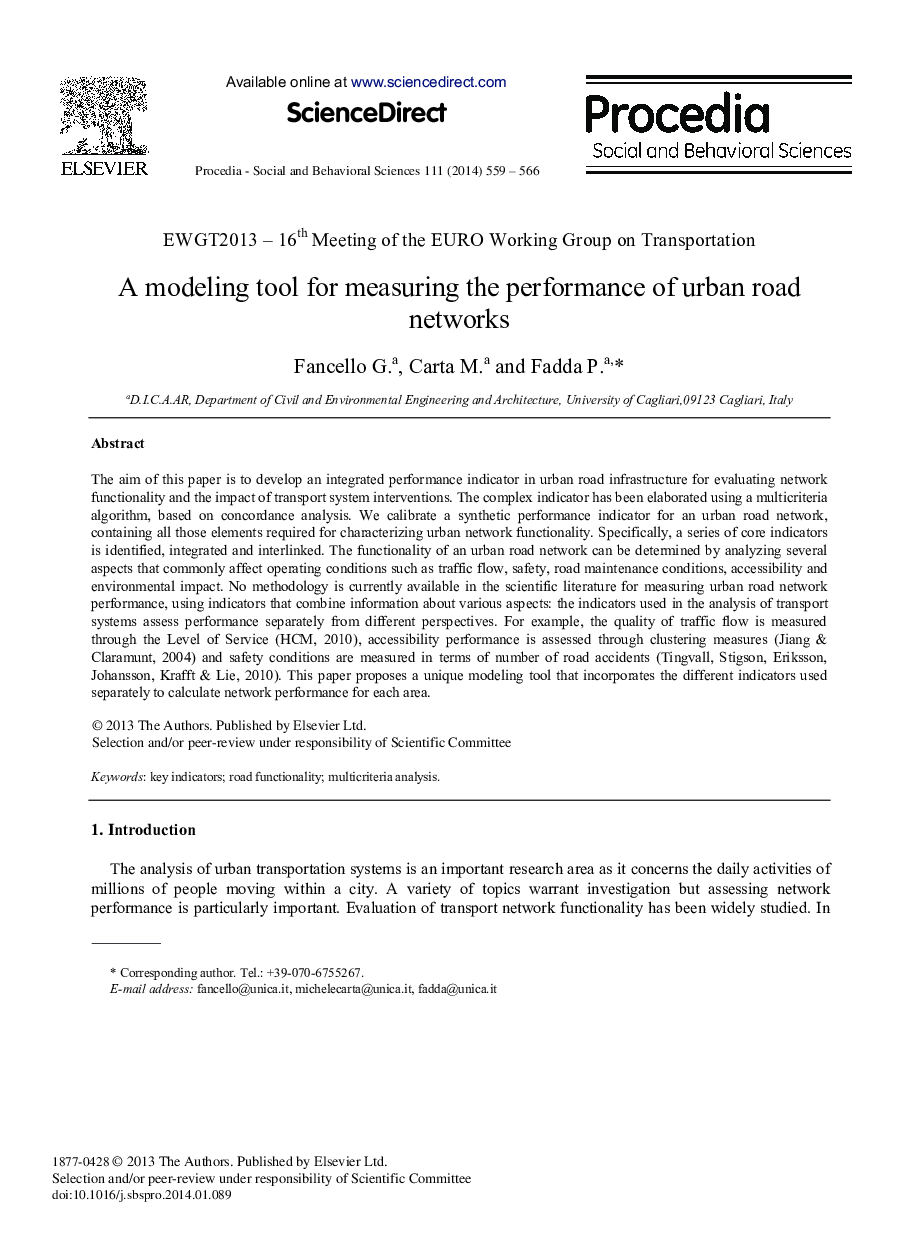| Article ID | Journal | Published Year | Pages | File Type |
|---|---|---|---|---|
| 1115942 | Procedia - Social and Behavioral Sciences | 2014 | 8 Pages |
The aim of this paper is to develop an integrated performance indicator in urban road infrastructure for evaluating network functionality and the impact of transport system interventions. The complex indicator has been elaborated using a multicriteria algorithm, based on concordance analysis. We calibrate a synthetic performance indicator for an urban road network, containing all those elements required for characterizing urban network functionality. Specifically, a series of core indicators is identified, integrated and interlinked. The functionality of an urban road network can be determined by analyzing several aspects that commonly affect operating conditions such as traffic flow, safety, road maintenance conditions, accessibility and environmental impact. No methodology is currently available in the scientific literature for measuring urban road network performance, using indicators that combine information about various aspects: the indicators used in the analysis of transport systems assess performance separately from different perspectives. For example, the quality of traffic flow is measured through the Level of Service (HCM, 2010), accessibility performance is assessed through clustering measures (Jiang & Claramunt, 2004) and safety conditions are measured in terms of number of road accidents (Tingvall, Stigson, Eriksson, Johansson, Krafft & Lie, 2010). This paper proposes a unique modeling tool that incorporates the different indicators used separately to calculate network performance for each area.
